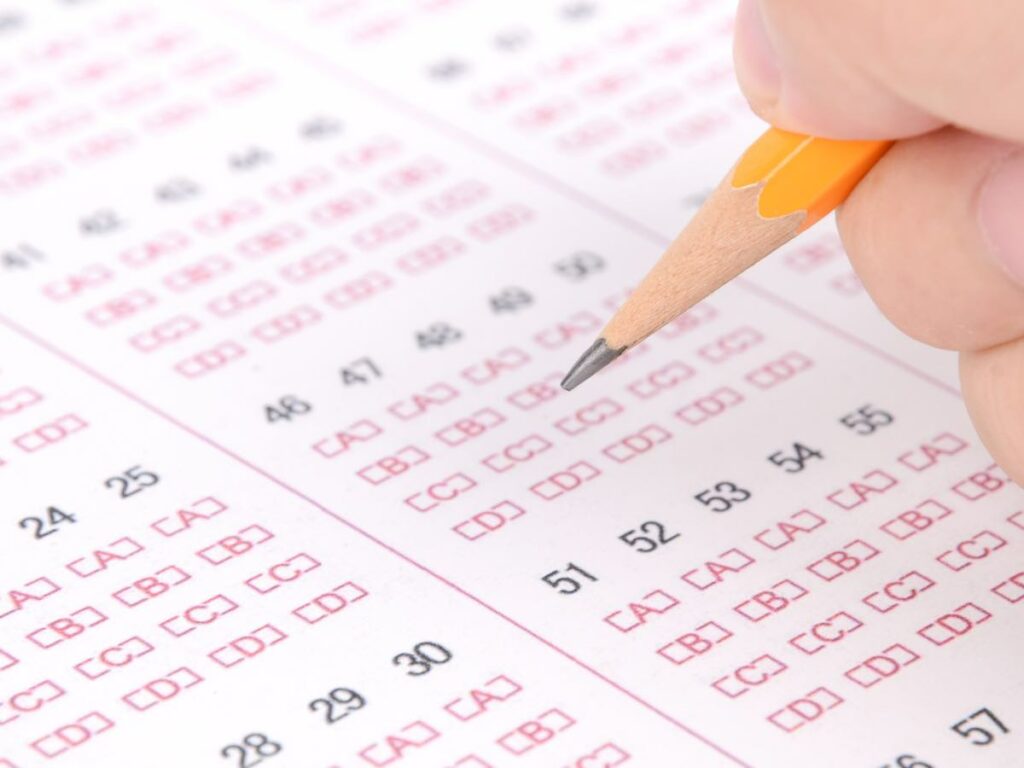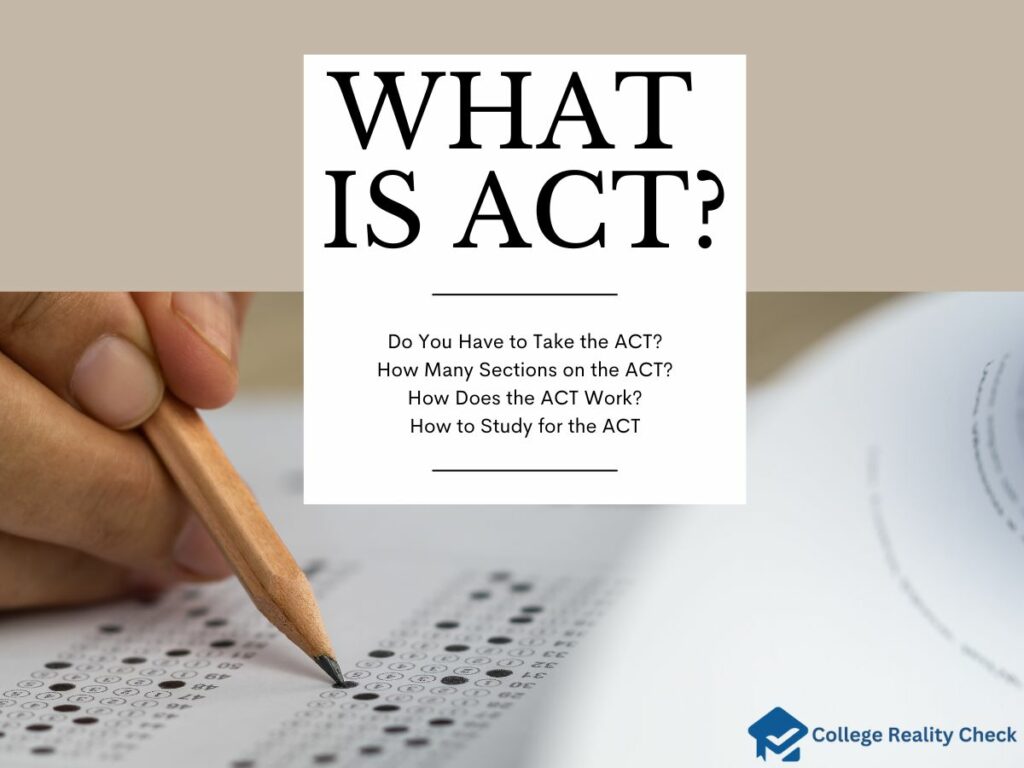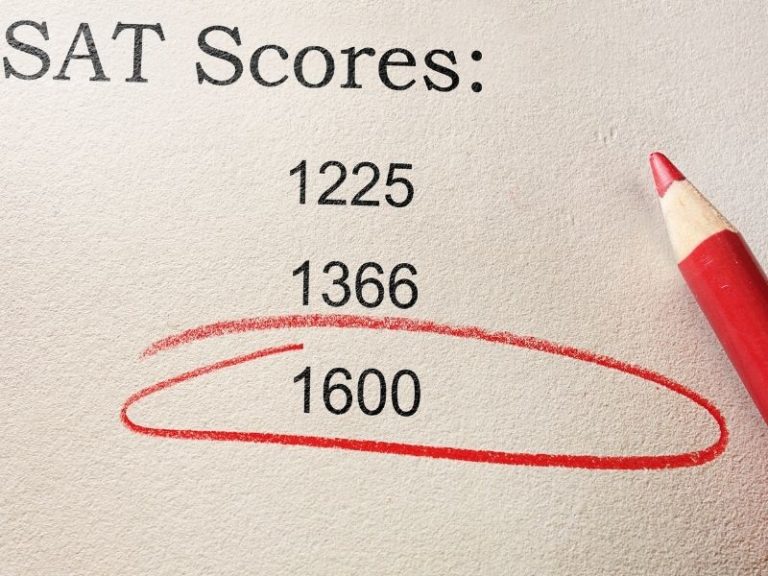How To Raise ACT Score by 10 Points Quickly
Getting accepted into the college of your dreams can depend on your ACT score. If it’s short by 10 points, you have no choice but to settle with any school on the bottom of your list.
Fortunately, retaking the ACT can give you the opportunity to raise your initial score by 10 points and show the admissions officers that you got what it takes.
One must study for 100 hours or more to get a 10-point ACT score increase. As a general rule, at least 10 hours of studying should be done for every point increase. It’s also vital to improve one’s ACT test-taking strategies, such as answering easy questions first and making educated guesses if needed.
When it comes to setting an ACT score goal, there are a couple of things to consider.
First, your ACT score should be higher than 50% of all test-takers. Second, your ACT score should be high enough to get you accepted into the college of your choice.
No matter if you are unhappy with your ACT practice test score or frustrated with your actual ACT score, keep reading. Below are some important things you need to know about raising your ACT score by 10 points. Yes, it’s possible to increase your ACT score by that much, provided you know the secrets!
Before anything else, let’s answer this question that many test-takers are too embarrassed to ask…
What is a Good ACT Score?
A good ACT score is 21. It puts the test-taker in the 50th percentile, which means that he or she outperformed 50% of all test-takers. A good ACT score is also something high enough for the schools the test-taker prefers. Many selective colleges and universities require an ACT score of at least 30.
Without any doubt, having a high ACT score is a good thing. However, it’s also a must to determine what ACT score is high enough for the test-taker.

Different test-takers have different ACT score goals. What’s high for one student may be low for another. You may get a 25 on the ACT and feel ecstatic since that’s greater than the median score of 21.
However, for someone who would like to attend an Ivy League school, an ACT score of 21 is not worthy of a celebration.
Before you take an ACT practice test or the actual ACT itself, it’s a good idea to determine your desired ACT score. This will give you an idea of how much time and effort you will have to put into it.
There are two things to consider when setting your ACT score goal:
Admission requirements
Different schools have different admission requirements. This is true for ACT scores.
Most colleges and universities accept students whose ACT scores range from 15 to 19, which is below the national average. On the other hand, most elite schools in the nation accept students whose ACT scores are 30 and above, which is way above the national average.
Let’s take a quick look at the average ACT scores of students admitted into the Ivy Leagues:
| IVY COLLEGE | ACT SCORE |
|---|---|
| Brown University | 29 to 34 |
| Columbia University | 32 to 35 |
| Cornell University | 30 to 33 |
| Dartmouth College | 30 to 34 |
| Harvard University | 32 to 35 |
| Princeton University | 31 to 35 |
| University of Pennsylvania | 30 to 34 |
| Yale University | 31 to 35 |
As a general rule, the higher your ACT score, the more chances you have of being accepted into selective schools. It also increases your chances of getting a degree for less with the help of scholarships and grants.
Personal goal
Besides the admissions officers of the college or university of your liking, there’s somebody else to impress with a good ACT score. And it’s no one else but the test-taker himself: you.
It’s perfectly fine to aim to score better than 50% of all test-takers.
But if you would like to fill your heart with pride and joy, you might want to consider outperforming more than just half of all test-takers. Nothing can boost your self-confidence more than knowing that you have a better ACT score than 75% or 90% of all test-takers!
This is when the importance of setting an ACT score goal you feel you deserve comes in.
If you took the ACT and you’re not pleased with your score because you know for a fact that you can do better and deserve so much more, then setting up a score goal before a retake can become a personal matter.
Here’s a table that can help you establish a personal ACT score goal:
| ACT SCORE | PERCENTILE |
|---|---|
| 36 to 33 | 99 |
| 32 | 98 |
| 31 | 97 |
| 30 | 95 |
| 29 | 93 |
| 28 | 90 |
| 27 | 87 |
| 26 | 83 |
| 25 | 79 |
| 24 | 74 |
| 23 | 68 |
| 22 | 62 |
| 21 | 56 |
| 20 | 49 |
| 19 | 42 |
| 18 | 36 |
| 17 | 29 |
| 16 | 23 |
| 15 | 17 |
| 14 | 12 |
| 13 | 7 |
| 12 | 4 |
| 11 to 1 | 1 |
Unfortunately, it’s always possible to fail to get your ACT score goal, be it based on the accepted test score of the school of your choice or what you believe you ought to get.
Fret not because you can always retake the ACT. However, unlike the SAT that you can take as many times as you like, you can only take the ACT up to 12 times.
Related Post: Can You Guess What is Passing ACT Score?
And this takes us to a matter many test-takers who are unhappy with their ACT scores would like to know…
Should I Retake the ACT?
Retaking the ACT is recommended for test-takers whose scores are not high enough to get them admitted into their chosen colleges and universities. The majority of students who retake the ACT tend to get higher scores the second time around. Taking the ACT more than once won’t hurt admission chances.
As mentioned earlier, you may take the ACT up to 12 times. Also, the ACT is offered seven times a year.
Because of this, you can always try to get a better ACT score if you are not proud of your initial score. Based on 2015 data, 57% of test-takers who retook the ACT saw improvements in their scores. Alas, 22% of them saw a decrease in their ACT scores. The rest saw no change in their ACT scores.
Whether you are proud of your ACT score or not, it’s still a good idea to take the test twice — the first one during your junior year and the second one during your senior year.
Taking the ACT twice entails more studying and money alright. However, it’s often worth it. This is especially true if going to a non-selective school is not an option. Your initial ACT will familiarize you with the test and establish your strengths and weaknesses. This will give you enough self-confidence and composure during the retake.
If you believe in yourself more and feel less anxious, acing the ACT is easier!
But just because it’s often a good idea to retake the ACT doesn’t mean that you have to take it another time. In some instances, it’s no longer recommended to take the ACT once again to enjoy a higher score. There are times when retaking it is pointless or can do more harm than good.
Here are some of the things that can make retaking the ACT a bad idea:
- You have a near-perfect ACT score. If you got a 34 on the ACT, it could be tempting to see if you can get a 36 since your score is just a couple of points away from being perfect. Sadly, it’s difficult to raise an already high score. On the other hand, there’s plenty of room for improvement if you have a low score.
- You already met your goal. Is your ACT score accepted by the colleges or universities you would like to go to? Then avoid retaking the ACT. Schools do not look for perfect ACT scores — they just want high enough ACT scores. Besides, it’s not just your test score that matters in the admission process.
- You have taken it more than thrice. You may take the ACT up to 12 times alright. However, it doesn’t mean that you should take it a dozen times. While retaking the ACT shows determination and perseverance, taking it four or more times may demonstrate that you have a wrong impression of the admissions process.
- You are too busy. It’s not enough that you have an impressive ACT score. It’s also a must that you have an impressive everything else. If retaking the ACT will keep you from devoting plenty of time to building your application, then taking the test to try to improve your score may not be a smart step.
Speaking of being too busy, taking the ACT requires lots and lots of preparation. This is true whether you are dissatisfied with your ACT practice test score or displeased with your actual ACT score. Needless to say, any test-taker should allot enough time to studying for the test.
And this takes us to this pressing question about the ACT that many test-takers want to be answered…
How Many Hours Should I Study for the ACT?
It’s recommended for the test-taker to study for at least 10 hours. The higher the ACT score goal, the more hours one should devote to preparing for the test. Studying up to six months before the ACT is a good idea. Daily until the day before the test date, the test-taker should study for two hours.
There are many reasons why students get low ACT scores. One of the most common of the bunch is failure to study enough for the standardized test.
Some students are too lazy to prepare for the ACT. But then there are also those who are too confident that they will get high ACT scores since they are smart enough to have aced their high school tests. Alas, high school tests are different from the ACT, and this is why some students have high GPAs but low ACT scores.
If you’re one of them, college admissions officers might think your high school inflated your GPA!
Making the wrong impression is not an option when applying to the school of your dreams. This is why you should give plenty of time to gearing up for the ACT, even if you are the brightest in your class.
How can you raise your ACT score by 10 points?
You are here, first and foremost, because you are looking for an answer to that question. Well, there are a couple of things that you may do to make that happen. First, study for the ACT several weeks to a few months before the test date arrives. Second, adopt a few smart test-taking strategies that can help you get a better ACT score.
As a general rule, improving your ACT score by one point requires 10 hours of studying. So, in other words, you will need to study for 100 hours if your goal is to add 10 points to your ACT score.
Standardized test experts recommend studying for the ACT for two hours a day. It’s a good idea to avoid studying for long hours daily. Otherwise, burnout may strike. Your schooling may suffer, too, which can harm your application. Again, admissions officers look at your entire application, not just your test score.
Doing the math, to raise your ACT score by 10 points, you should study for two hours daily for 50 days.
What’s nice about preparing for the ACT to get a 10-point increase is that you can budget your time according to your preference or schedule to make studying for the test less stressful and exhausting.
For instance, if you can study for only an hour and a half per day, you will have to study for 67 days. Or, if you can study for only 30 minutes per day, you will have to study for 200 days. You can study for more than two hours a day if the test date is close. However, make sure that you take frequent breaks to keep burnout at bay.
We mentioned earlier that it’s not just studying enough that you should do to raise your ACT score by 10 points. You should also know how to answer the ACT in a way that can help you reach your target score.
And this leads us to this important question whose answer every ACT test-taker should know…
5 ACT Test-Taking Strategies That Work
Skipping difficult questions and going back to them after answering the easy ones help with time management. Eliminating the wrong answers, on the other hand, can help increase a test-taker’s chance of answering right. Making an educated guess is also an effective ACT test-taking strategy.
Plenty of studying can be canceled out easily by failure to answer the ACT the right way.

What makes the ACT different from high school tests is that answering it requires a different strategy. And failure to answer the test properly can lead to disastrous results. It’s for this reason exactly why we mentioned earlier that it’s possible for smart students with high GPAs to end up with low ACT scores.
The following are some very simple yet highly effective hacks on answering the ACT to add 10 points to your score:
Answer the easy questions first
If a question seems hard to answer, mark it and leave it. Difficult questions can take up lots of precious time, leaving you with very little to no time for easy ones.
It’s because of this why it’s a smart move to answer the easy questions first. Not only will this let you manage your limited time very well but also increase your self-confidence. If you feel confident enough, you will have higher chances of answering some of the most mind-boggling ACT questions right.
Write on the test booklet
Make sure that you keep your answer sheet clean and free of unnecessary marks.
On the other hand, you can write all over your test booklet.
For instance, it’s a great idea to encircle or underline important words, especially those in wordy passages. It will help you save a lot of precious time — always remember that you will have to answer all 215 ACT questions within two hours and 55 minutes only.
Get rid of wrong answer choices
In some instances, it’s not the correct answers you should figure out. Looking for the wrong answers can help you increase your ACT score by 10 points or more. That’s because it will help boost your chances of picking the right one.
Eliminate one wrong answer, and you have a 25% chance of answering the question right! And if you can eliminate three wrong answers, you will have a 50% chance of getting the right answer! So, if it seems like you cannot determine the letter to pick, check which letters you know you shouldn’t pick.
Take an educated guess
It’s fine to skip a question if you cannot answer it right away. However, it’s not fine to skip answering a question because you still don’t know the answer to it after giving it another shot.
Test-takers won’t be penalized for guessing, which is why you may guess to your heart’s content. However, make an educated guess, which is something that you know could be the correct answer.
So, needless to say, you should refrain from doing what other test-takers do on the ACT: just choosing the letter C every single time.
The belief that the letter C is the most common answer on the ACT is just a myth.
It’s rooted in the fact that teachers who design multiple-choice tests usually place the correct answers in the middle so that the students would have a hard time making correct guesses. On the ACT, a computer randomizes the answer choices.
Never leave any answers blank
Because there is nothing to fear when guessing on the ACT, see to it that you have filled in each and every bubble.
Check that there are no blank bubbles before you submit your answer sheet. If there are and there’s no time to reread the questions, just make a wild guess — after all, there’s a 20% chance that it will be the right one. And while you’re at it, ensure that there are also no partially filled in bubbles.
Related Post: 12 Best ACT Test Hacks
Just Before You Take or Retake the ACT
You can raise your ACT score by 10 points by getting ready for the test very well, whether it’s your first or second time to take it.
Since it is recommended to spend at least 10 hours studying for every one-point increase, you should review for the ACT for not less than 100 hours. Per day, it’s a good idea to limit your studying to two hours.
Besides studying for the ACT, it’s also a must that you acquaint yourself with some ACT test-taking hacks.
Answering the easy questions first and the difficult questions last, eliminating the wrong answer choices, making educated guesses, writing on the test booklet — all of these strategies can help fend off unnecessary problems during the test, allowing you to increase your chances of adding 10 points to your ACT score.
Related Post: How To Do Well on the ACT Without Studying?
Disclaimer: The views and opinions expressed in this article are those of the authors and do not necessarily represent those of the College Reality Check.





